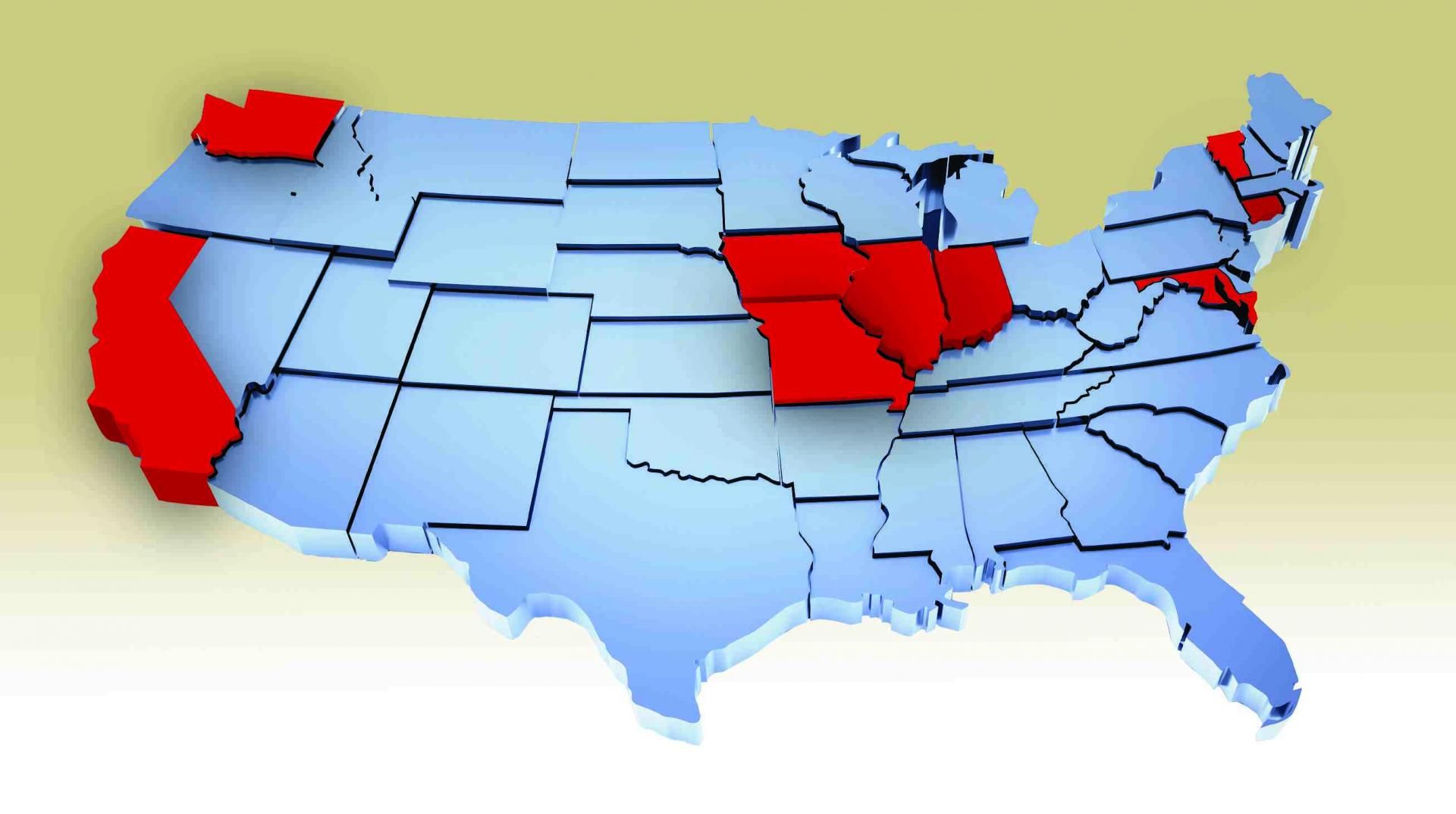Which States Are Pushing for GMO Labeling?
Could big business compromise with a law to label genetically modified organisms?

Genetically modified organisms (GMOs) are having a big moment. While their labeling in food products is strictly controlled in some 63 countries, the United States is just starting to address the issue of labeling on its own turf.
California drew the country’s attention last year with Proposition 37, a narrowly defeated bill that would have required GMO labeling in the Golden State had it passed. A considerably smaller (but related) headline came out of Connecticut, where bill HB 5117 would have mandated labeling, too. (HB 5117 was ultimately stripped of its integrity when lawmakers feared potential lawsuits against the state.) Over a dozen similar, state-level bills failed in 2012.
Even though these initiatives have floundered one after another, labeling advocates keep pushing the issue in new states. Shortly after the defeat of California Prop 37, citizens of Washington State garnered enough signatures to introduce I-522, a bill the state legislature must either approve or put to public vote. Vermont recently introduced a similar bill (H112), and, at the time of this writing, Hawaii’s lawmakers had just days to vote on HB 174-another labeling bill. According to the Center for Food Safety, GMO labeling bills are active in 22 states. Missouri is even mulling SB 155, a labeling bill intended for fish and meat products only.
With an end to state initiatives nowhere in sight, one has to wonder how long anti-labeling groups will fight back with expensive ad campaigns. (They pumped in roughly $45 million worth of advertising against Prop 37 alone.) If GMO labeling laws do pass in multiple states, manufacturers of GM foods are sure to have headaches from the cross-border nuances of different states having different labeling procedures.
Where has FDA been for what is clearly a national issue? For the most part, FDA remains silent-in spite of the fact that 55 members of Congress signed a bicameral letter sent to the FDA Commissioner last March in support of a labeling petition. Over one million public comments were submitted in support of the petition, and that’s the largest public response FDA has ever received, says the Center for Food Safety.
The agency’s lack of action resembles its take on natural claims, which have proved far more difficult to enforce than organic regulations. All the while, FDA is moving along with AquaAdvantage salmon, a genetically engineered fish that reaches maturity faster than its farm-fed sisters. In December 2012, FDA published an environmental impact report finding the GMO salmon posed no significant impact on the human environment.
Well, rumor now has it that leading U.S. food companies are growing wary of state-level labeling movements and actually considering a compromise. In January of this year, press outlets including The New York Times picked up an AlterNet article written by Ronnie Cummins, founder and director of the Organic Consumers Association, which alleged that a secret meeting took place between FDA and leading U.S. food companies, among them Wal-Mart, Coca-Cola, General Mills, Mars, and Pepsi-Frito Lay. The purpose of the meeting, wrote Cummins, was to lobby for a mandatory, federal GMO labeling law.










